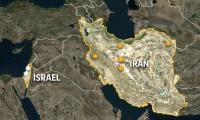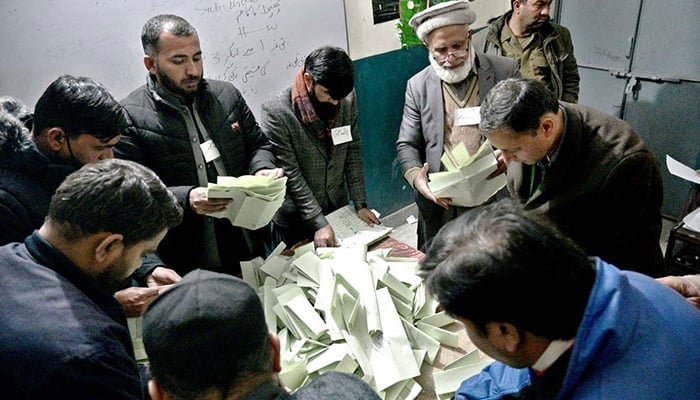Election audit
ECP to conduct an audit of election results proposing a three-stage methodology
It has been almost two weeks since the general elections were held in Pakistan, yet all we have been hearing from several political parties and candidates are allegations of rigging. With allegations and ‘revelations’ and all manner of election-related suspicions being raised, the legitimacy of the 2024 elections results is definitely in play. Keeping this in context perhaps, the Free and Fair Election Network (Fafen), an electoral watchdog, has urged the Election Commission of Pakistan (ECP) to conduct an audit of the election results, proposing a three-stage methodology. Fafen has asked the ECP to scrutinize the results of constituencies that have been duly challenged by political parties and candidates at the appropriate legal fora using data analytics and forensics to establish the legitimacy of the outcome of the general elections. The organization says that such an audit must include representatives nominated by political parties as well as independent observers.
After all the ruckus we have witnessed over the last 10 days, it is important the ECP listens to Fafen and other such observer bodies so that rigging allegations after every election are investigated in a timely and transparent manner. Pakistan has seen enough political uncertainty over the last few years and it cannot sustain this if we are to move forward economically and as a nation. If a large part of the electorate feels its mandate has been stolen, regardless of whether these claims are true or false, the ECP has a duty to address their grievances with proper facts. Unless this is resolved, every election will have legitimacy issues. From 2018 to 2024, it seems we have not learned any lessons. A parliament cannot function properly if there is disruption due to credibility and legitimacy claims. We have seen how democracy has been served a blow in the last six years due to such (mis)adventures.
However, it is important that political stakeholders do not disrupt the system either. That does nobody any good, especially the political parties and their voters. and especially if the legitimacy of the entire democratic system comes under question. Pakistan has seen more than its share of undemocratic regimes and the struggle for the restoration of democracy has continued over decades. When the legitimacy of the democratic system erodes, democracy suffers as an inevitable consequence. And without democracy, there is no will of the people or accountability of their representatives in parliament. We cannot afford a ‘Bangladesh model’ or an ‘Egyptian model’ or any model that is anti-democratic. It is because of such experiments that today the country has a ‘hybrid model’ that seems difficult to roll back. Pakistan went to the polls after a long delay. No party is demanding re-elections. Many are only demanding a recount as is their right. Instead of denying them this right, the ECP should also address and resolve these issues as it is equally important for the ECP to restore its credibility. There have been enough controversies starting from the night of February 8 surrounding these elections and the ECP’s role in it. There is no denying that false propaganda in recent times has also tarnished the credibility of the elections but there are some questions too that need to be answered. Do we really need to be stuck in this limbo forever? Is it not time to move on as a representative democracy? The people of Pakistan at the very least deserve this much respect.
-
 AI Safety Battle: Anthropic Fires Back At Pentagon After US Military Flags It ‘supply Chain Risk’
AI Safety Battle: Anthropic Fires Back At Pentagon After US Military Flags It ‘supply Chain Risk’ -
 OKC Vs Nuggets: NBA MVP Shai Gilgeous-Alexander Scores 36 In Fiery Overtime Win
OKC Vs Nuggets: NBA MVP Shai Gilgeous-Alexander Scores 36 In Fiery Overtime Win -
 Eric Dane's Biggest Regret Comes To Light Following Days Of His Death
Eric Dane's Biggest Regret Comes To Light Following Days Of His Death -
 Israel Launches Attack On Iran's Capital And Declares State Of Emergency
Israel Launches Attack On Iran's Capital And Declares State Of Emergency -
 At Least 15 Dead After Military Plane Carrying New Banknotes Plunges Out Of Control In Bolivia
At Least 15 Dead After Military Plane Carrying New Banknotes Plunges Out Of Control In Bolivia -
 OpenAI Partners With Pentagon After Trump Bans Anthropic AI
OpenAI Partners With Pentagon After Trump Bans Anthropic AI -
 Trump Orders Federal Agencies To Stop Using Anthropic AI Tools
Trump Orders Federal Agencies To Stop Using Anthropic AI Tools -
 Shocking Details Emerge In Martin Short’s Daughter Katherine's Death Investigation: 'Kept To Herself'
Shocking Details Emerge In Martin Short’s Daughter Katherine's Death Investigation: 'Kept To Herself' -
 Daniel Serafini Gets Life Without Parole In In-laws Murder And Attempted Murder Case
Daniel Serafini Gets Life Without Parole In In-laws Murder And Attempted Murder Case -
 Yerin Ha On Stepping Into The Spotlight In Bridgerton Season Four
Yerin Ha On Stepping Into The Spotlight In Bridgerton Season Four -
 Nakiska Ski Area Avalanche Leaves Youth Unresponsive, Second Skier Escapes Unhurt
Nakiska Ski Area Avalanche Leaves Youth Unresponsive, Second Skier Escapes Unhurt -
 Igor Komarov Missing In Bali: Seven Foreign Suspects Arrested In Kidnapping Probe
Igor Komarov Missing In Bali: Seven Foreign Suspects Arrested In Kidnapping Probe -
 'I Swear' Director Kirk Jones Says Bafta Broadcast Mishap Failed Tourette’s Advocate
'I Swear' Director Kirk Jones Says Bafta Broadcast Mishap Failed Tourette’s Advocate -
 Yogurt Shop Murders Solved: 1991 Austin Cold Case Finally Linked To Serial Killer
Yogurt Shop Murders Solved: 1991 Austin Cold Case Finally Linked To Serial Killer -
 Iran Tensions Rise As Trump Says He Is 'not Thrilled' With Nuclear Negotiations
Iran Tensions Rise As Trump Says He Is 'not Thrilled' With Nuclear Negotiations -
 Where Is Calvin Klein's Wife Kelly Klein Now After Divorce And Fashion Fame?
Where Is Calvin Klein's Wife Kelly Klein Now After Divorce And Fashion Fame?




